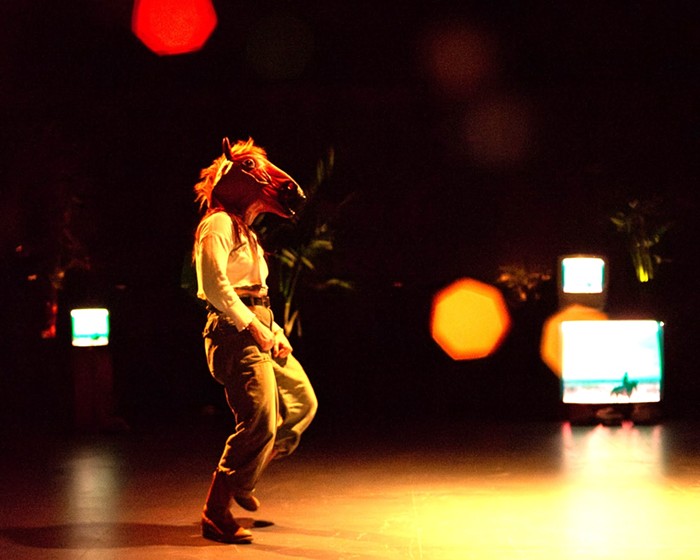OPENING A LITTLE over a week before Sunday's horrific shooting at Pulse nightclub in Orlando, Florida, Stupid Kids, a collaborative effort mining queer identity presented by Fuse Theatre Ensemble, Post5 Theatre, and OUTwright Theatre Festival, couldn't have been more timely.
At the door, Post5 Co-Artistic Director Rusty Tennant collected donations for the victims of the shooting, and informed audience members of a candlelight vigil to be held in the theater's small courtyard after the performance. It was a show of solidarity and community, and a reminder that while huge strides have been made in the past decade for LGBT rights, we aren't so far away from the world depicted in John C. Russell's play, first produced in 1991, about closeted kids making sense of themselves in one of the most oppressively heteronormative environments possible: high school.
The titular stupid kids are Patti Smith-obsessed nascent lesbian Kimberly (Jessica Hillenbrand) and Neechee (Phillip Berns), who are extremely close in the way that kids who don't fit into the high school pecking order have to be, as a matter of survival, and Berns and Hillenbrand's chemistry is one of the high points of the play—any scene featuring just the two of them elevates the material.
If there's a major weak spot in Stupid Kids, it's in Kimberly and Neechee's long-shot love objects, the normatively popular Judy (Taylor Jean Grady) and Jim (Jim Vadala), whose characterizations are just as generic as the throwaway alliteration of their names suggests. Unimaginative basics who give heterosexuality a bad name, they're believable in their dullness, but it's unclear what the comparatively kinetic and gawkily charming Kimberly and Neechee could possibly see in them. The play also suffers from some temporal confusion (Kimberly's flannel and dark lipstick strongly read '90s; Judy's fluffy bangs and much of the soundtrack place it somewhere circa 1985) and while the second half gets unapologetically weird, making subtext explicit, the first has an overpowering after-school special vibe.
But even taking all that into account, Stupid Kids' depiction of the frantic, platonic closeness between its two queer protagonists remains quietly revolutionary—and necessary.


















